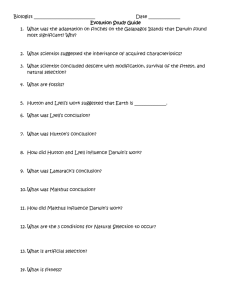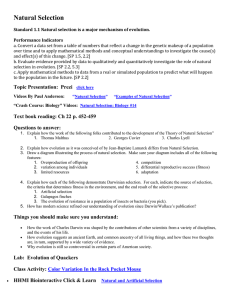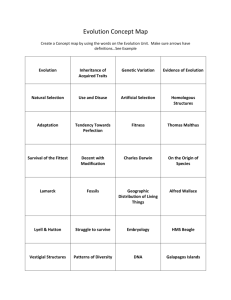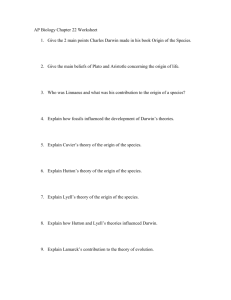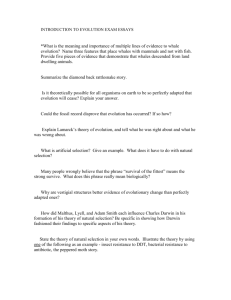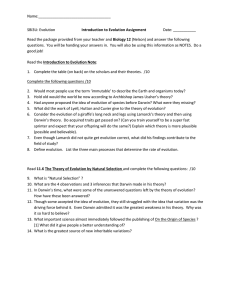Charles Lyell: Principles of Geology [adapted from http://www.pbs
advertisement
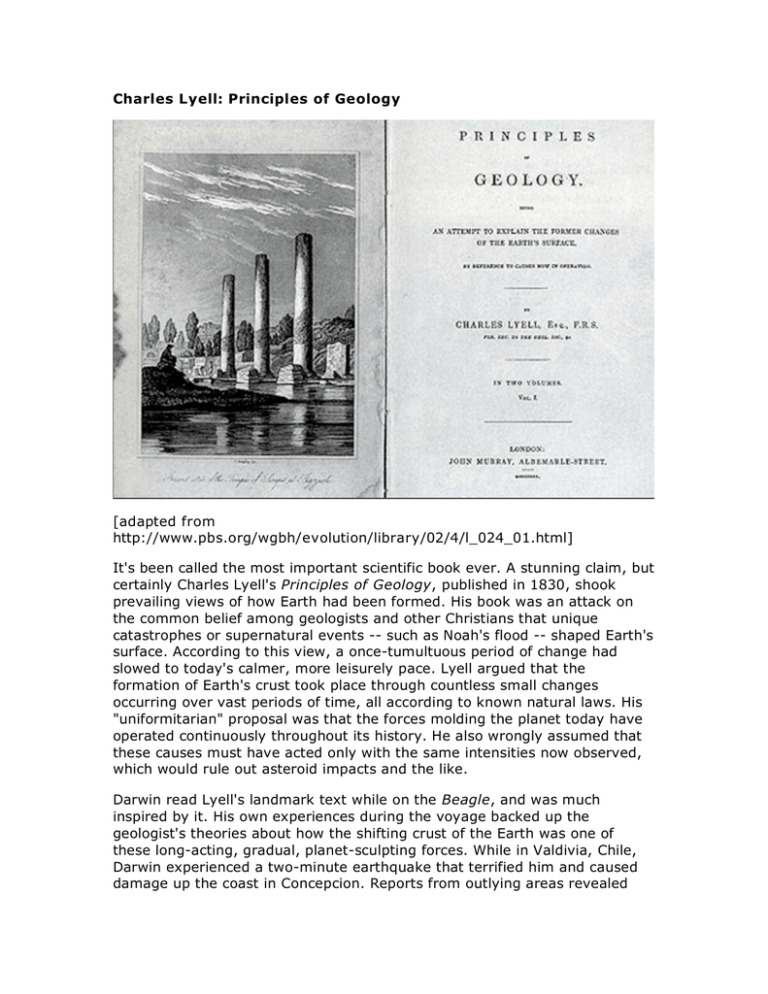
Charles Lyell: Principles of Geology [adapted from http://www.pbs.org/wgbh/evolution/library/02/4/l_024_01.html] It's been called the most important scientific book ever. A stunning claim, but certainly Charles Lyell's Principles of Geology, published in 1830, shook prevailing views of how Earth had been formed. His book was an attack on the common belief among geologists and other Christians that unique catastrophes or supernatural events -- such as Noah's flood -- shaped Earth's surface. According to this view, a once-tumultuous period of change had slowed to today's calmer, more leisurely pace. Lyell argued that the formation of Earth's crust took place through countless small changes occurring over vast periods of time, all according to known natural laws. His "uniformitarian" proposal was that the forces molding the planet today have operated continuously throughout its history. He also wrongly assumed that these causes must have acted only with the same intensities now observed, which would rule out asteroid impacts and the like. Darwin read Lyell's landmark text while on the Beagle, and was much inspired by it. His own experiences during the voyage backed up the geologist's theories about how the shifting crust of the Earth was one of these long-acting, gradual, planet-sculpting forces. While in Valdivia, Chile, Darwin experienced a two-minute earthquake that terrified him and caused damage up the coast in Concepcion. Reports from outlying areas revealed that volcanoes had been active, and Darwin and the Beagle's captain, Robert Fitzroy, measured an eight-foot uplift of the land. Darwin reckoned that volcanoes were connected by magma underground, and that pressure not released through eruptions could cause earthquakes. Thus these different phenomena were different aspects of the forces Lyell believed had operated over geological time to produce the world we see now. "The present is the key to the past," was the motto of uniformitarian science. And Darwin, greatly influenced by Lyell, extended that principle to biology. Species, like geologic features, evolved gradually or died out gradually. Like the forces Lyell talked of, the shifting and rising and falling of land, Darwin held that the forces seen today in the biologic world -- reproduction, inheritance, and competition -- gradually produced the whole diversity of life on Earth. There, Lyell could not, and did not, go. He believed that every animal or plant, including humankind, was adapted to the niche in which it was created.

